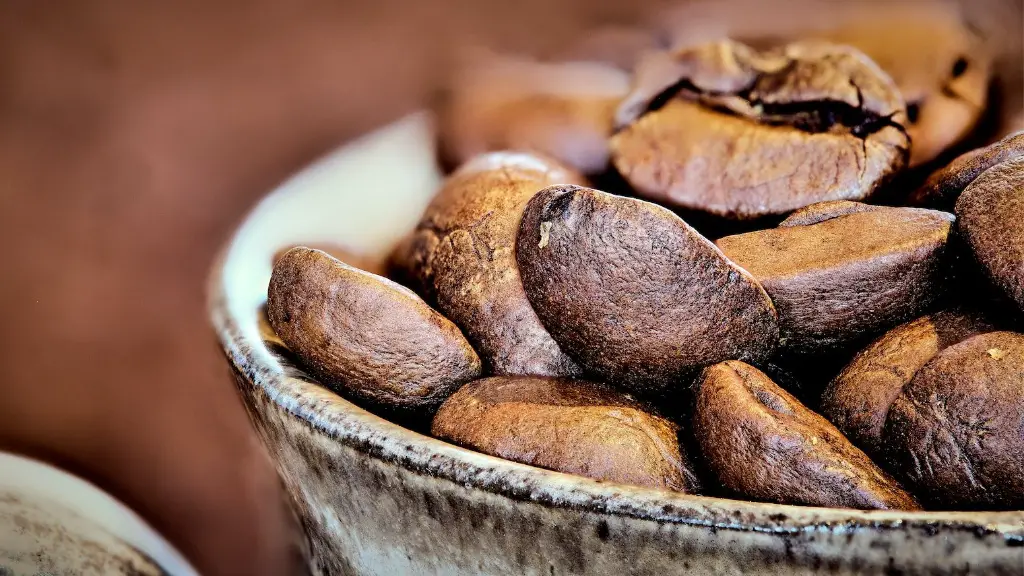Coffee is enjoyed by many people worldwide. But when a woman is pregnant, she has many new things to be aware of including if it is safe to drink coffee. This article will discuss the pros and cons of having coffee while pregnant and the potential risks associated with it. It will also explore the current evidence and advice from medical professionals on the matter.
Many women may be surprised to learn that moderate amounts of coffee during pregnancy is generally considered as safe. Caffeine is a drug that can cross the placenta and enter the blood stream of the baby, but most of the time the amount is considered minimal and negligible. In fact, a moderate amount of coffee, being 200mg or less per day is generally safe, with the amount found in one cup of regular brewed coffee being around 95mg.
Despite this, any woman expecting a child should be cautious in regards to drinking coffee. The effects of caffeine on the fetus depend on the amount consumed and the individual, as well as other factors such as the age of the woman and how sensitive she and her baby are to caffeine. Therefore, it is best to speak to a medical professional before consuming any coffee.
Research suggests that excessive amounts of coffee during pregnancy can increase the risk of low birth weight as well as other potential problems such as miscarriage, preterm labour and stillbirth. A study carried out in 2017 found that women who consumed more than 200mg of caffeine a day had a 16% increase in the risk of having a miscarriage compared to those who had no coffee. Besides this, it is thought that too much caffeine can limit the growth of the baby and cause increases in the heart rate and risk of birth defects.
That being said, some doctors suggest that there may be a benefit to having some coffee while pregnant as it has been linked to lower risks of premature birth and foetal growth restriction. This is especially true if you have been a regular coffee drinker before becoming pregnant.
Hence, if you are pregnant and currently drinking coffee, and would like to continue doing so, it is best to limit your intake to 200mg per day and speak to your medical professional about your individual risks.
Coffee Alternatives
For those looking for an alternative to drinking coffee while pregnant, there are many options available, ranging from herbal teas to decaffeinated coffee. Herbal teas such as chamomile, peppermint and raspberry leaf can all be safely consumed during pregnancy and are even thought to have beneficial properties. Decaffeinated coffee is another option which contains significantly less caffeine than regular coffee and is therefore safer to have. Additionally, drinking plenty of water is beneficial to both the mother and baby, whilst also keeping the body hydrated.
It is important to bear in mind that there are risks associated with drinking any type of caffeinated drink during pregnancy, even if it is within the moderate range. Therefore, drinking water or other alternative beverages is recommended during pregnancy, allowing women to get the hydration their body needs without any added risks.
The Effects of Caffeine 2nd and 3rd Trimesters
During the second and third trimester, an expecting mother’s nutritional and hydration needs will be different, meaning that the consumption of caffeine should be further limited. If a woman has been drinking small amounts of coffee or caffeinated beverages throughout her pregnancy, this should be reduced to only one cup per day during these trimesters. This will ensure the baby is not receiving any excess caffeine and will reduce the risks associated with having too much.
Additionally, pregnant women should keep in mind that caffeine is not only found in coffee. It is also one of the main active ingredients in energy drinks and many fizzy drinks. Therefore it is important to check the labels of any drinks being consumed to ensure the amount of caffeine is being monitored properly.
Breastfeeding
When breastfeeding, the effects of caffeine are thought to be minimal as only a very small concentration is likely to be passed into the baby’s system. However, it is still recommended to limit coffee intake to only one cup a day. Additionally, the same advice applies for expecting mothers who are breastfeeding and will be having additional cups of coffee.
It is also important to keep in mind that having coffee or other caffeinated drinks alongside breastfeeding can affect the mother’s ability to produce adequate milk as caffeine is known to reduce lactation. Therefore, alternatives such as herbal teas are ideal when it comes to nourishing yourself while breastfeeding.
The Benefits of Coffee During Pregnancy
Despite there being potential risks associated with consuming coffee while pregnant, there are some benefits that are worth considering.
A number of studies suggest that moderate amounts of coffee can reduce the danger of preeclampsia, a complication that arises in late pregnancy and can be linked to more serious health risks for the mother and baby. Women who are expecting a child may also benefit from drinking small amounts of coffee due to the fact it contains beneficial antioxidants, which can support the body’s immune system during pregnancy.
Conclusion
As this article has explored, coffee is safe for pregnant women to consume in moderation, with the recommended limit being 200mg per day. It is important to remember, though, that any amount of caffeinated drinks can have an impact on both the mother and the baby, and that total avoidance may be the safest option.
Additionally, women should bear in mind that caffeine is found in many other foods and beverages, and it is important to keep an eye on the amount of caffeine being consumed throughout the pregnancy.
Herbal Teas During Pregnancy
Herbal teas are a great source of hydration during pregnancy and often contain beneficial properties for the mother and baby. Examples of safe herbal teas include chamomile, peppermint, ginger root and raspberry leaf. Ingesting small amounts of these teas can reduce nausea, aid digestion and reduce stress and anxiety.
However, it is important to be aware of how much herbal tea is being consumed as too much can create an atmosphere of over-stimulation in the body and can upset the digestive system. To ensure these remedies are looked upon as a safe option, always consult your doctor before having any of these teas during pregnancy.
Caffeine During Pregnancy – The Bottom Line
It is clear that drinking coffee while pregnant comes with both risks and potential benefits. Whilst there is evidence that moderate consumption of coffee may be safe, this varies depending on the individual and it is important to always listen to the advice of your doctor. The safest option is to avoid drinking coffee or other caffeinated drinks throughout pregnancy and to explore alternative beverages instead.



